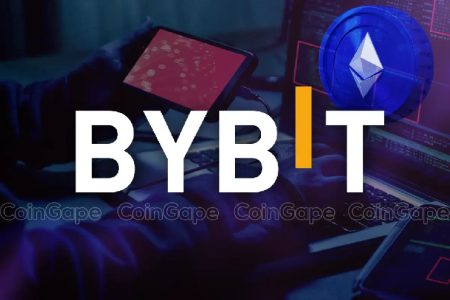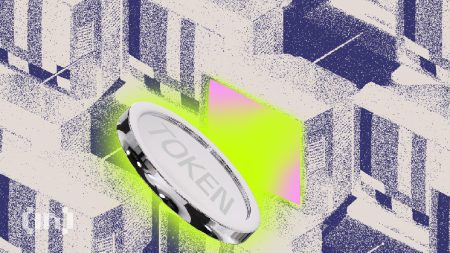South Korea’s Shift Toward Institutional Crypto Trading: A New Era of Financial Innovation
Introduction to South Korea’s Crypto Policy Change
South Korea, a global leader in technological innovation and digital adoption, is poised to make a significant move in the cryptocurrency space. After years of stringent regulations aimed at curbing speculation and combating money laundering, the country is set to lift its ban on institutional crypto trading. This decision, effective through 2025, will allow certain institutional entities, such as non-profits, universities, law enforcement agencies, and listed companies, to trade crypto assets like Bitcoin and Ethereum. This policy shift marks a new chapter in South Korea’s approach to digital assets, reflecting both local and global trends in the financial and technological sectors. By easing restrictions, the government aims to foster innovation while maintaining regulatory oversight to mitigate risks.
A History of Strict Crypto Regulations in South Korea
South Korea’s journey in regulating cryptocurrencies has been marked by caution and rigorous oversight. In 2017, the Financial Services Commission (FSC) banned Initial Coin Offerings (ICOs) due to concerns over speculative investments and potential fraud. This was followed by a prohibition on financial institutions offering crypto-related services and the introduction of a real-name trading system to ensure accountability in transactions. By 2018, Anti-Money Laundering (AML) regulations were implemented to monitor crypto activities more closely. These measures were reinforced in subsequent years, with banks required to perform AML checks on crypto exchanges in 2019. The Special Financial Transactions Act of 2020 further solidified these regulations, mandating exchanges to comply with AML standards and use real-name bank accounts.
However, despite these stringent measures, the crypto market remained volatile. In 2021, staking activities were banned, and the FSC intensified its monitoring of exchanges. The collapse of the Terra-Luna project in 2022 served as a catalyst for further regulatory action, leading to the establishment of the Digital Asset Basic Act (DABA) in 2023. This act laid the groundwork for a more structured and supervised crypto ecosystem in South Korea.
The Two-Phase Plan to Ease Crypto Trading Restrictions
The South Korean government’s decision to lift the institutional crypto trading ban is part of a strategic two-phase plan. The first phase, announced on February 13, 2025, allows certain institutional entities, such as non-profits, universities, and law enforcement agencies, to trade crypto assets through virtual asset exchanges. These entities will be permitted to buy and sell approved cryptocurrencies, including Bitcoin and Ethereum, under strict regulatory guidelines.
The second phase, expected to commence in the latter half of 2025, will expand the scope of the pilot program to include approximately 3,500 listed companies and professional investors registered under South Korea’s Capital Market Act. This phase represents a significant step toward integrating digital assets into the mainstream financial system, enabling corporations to engage with cryptocurrencies in a regulated environment. The government’s phased approach reflects its commitment to balancing innovation with risk management, ensuring that the transition is both controlled and sustainable.
Global Trends Driving South Korea’s Crypto Policy Shift
The decision to ease restrictions on institutional crypto trading is not isolated to South Korea; it is part of a broader global trend. As more countries explore ways to integrate corporations into the digital asset market, South Korea is aligning itself with international developments. The government has acknowledged this global momentum, highlighting the growing demand for blockchain-related businesses both domestically and internationally.
By lifting the ban, South Korea aims to position itself as a key player in the global crypto economy. The move is expected to attract foreign investment, foster technological innovation, and enhance the country’s competitiveness in the digital asset space. Furthermore, it signals a shift in the government’s perception of cryptocurrencies, from a speculative asset to a viable component of the financial ecosystem.
Risks and Considerations in South Korea’s Crypto Expansion
While the lifting of the institutional crypto trading ban presents significant opportunities, it also raises important questions about risk management. The crypto market is inherently volatile, and the integration of institutional players could amplify both the potential benefits and challenges. To address these concerns, the South Korean government has emphasized the importance of robust regulatory frameworks and compliance measures.
The lessons learned from past incidents, such as the collapse of the Terra-Luna project, have informed the development of stricter regulations. The Digital Asset Basic Act (DABA) of 2023 serves as a foundational framework for oversight, ensuring that institutional crypto trading is conducted within a secure and transparent environment. By prioritizing regulatory compliance and investor protection, South Korea aims to mitigate the risks associated with crypto assets while harnessing their potential.
Conclusion: A New Era for Digital Assets in South Korea
South Korea’s decision to lift its ban on institutional crypto trading marks a new era for digital assets in the country. This policy shift reflects a careful balance between innovation and regulation, demonstrating the government’s commitment to fostering a vibrant and secure financial ecosystem. By allowing institutional entities to engage with cryptocurrencies, South Korea is positioning itself as a leader in the global crypto economy while addressing the challenges posed by this evolving market.
As the world continues to grapple with the complexities of digital assets, South Korea’s approach serves as a model for other nations. The country’s two-phase plan, coupled with its emphasis on regulatory oversight, provides a roadmap for integrating cryptocurrencies into the mainstream financial system. With this move, South Korea is not only embracing the future of finance but also paving the way for a more inclusive and innovative economy.
Disclaimer: The information provided in this article is for informational and educational purposes only. It does not constitute financial advice or any form of recommendation. Readers are advised to exercise caution and consult with financial professionals before making any investment decisions related to cryptocurrencies.















